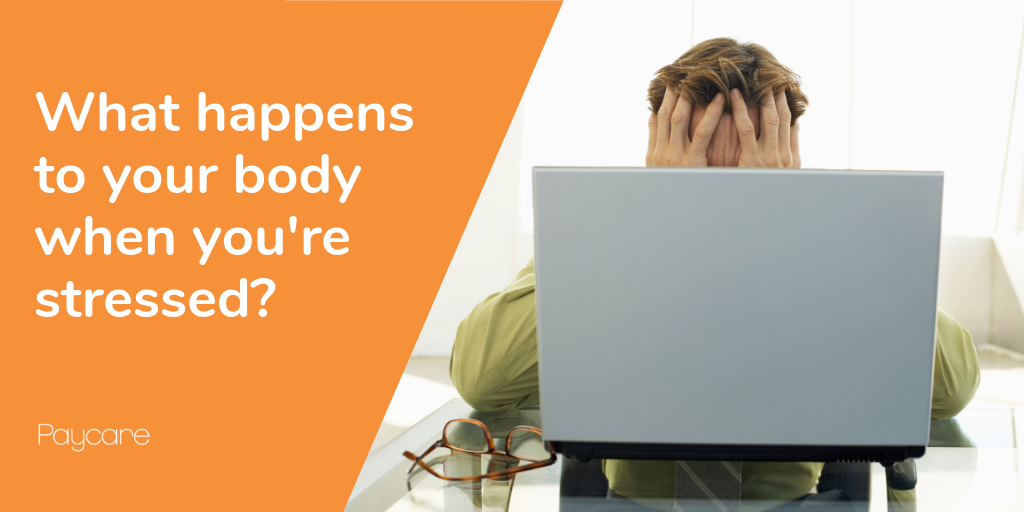Stress – something which many of us suffer with throughout our hectic, daily lives. But how many of us tend to fall into the trap of ignoring it? Suffering regularly from stress, whilst not knowing how to deal with it, can impact our health both physically and mentally. That’s why, in support of #NationalStressAwarenessDay, we think it’s important to understand, recognise and become aware of when our bodies are going through a stressful experience, all so we can learn to manage and react to it in the right way.
Whilst luckily, for most of us, our day to day stresses are simply caused by an over-flowing inbox or looming deadline, we’ve teamed up with our Paycare Partners, Medstars, to bring you a blog which shares a first person encounter of high-stress, and explores the symptoms you can look out for. It’s a very insightful and educational read, so grab a coffee and digest!
“I’m a Consultant Paediatric Anaesthetist caring for babies and children undergoing surgery at Birmingham Childrens’ Hospital. My role is to keep children safe, pain-free and return them to their parents at the end of surgery.
I can vividly remember one case in particular. A four month-old baby I was looking after suffered a cardiac arrest soon after her operation. All surgery carries risks but even so, this was a rare and unexpected event. I led a team of eight doctors and nurses who worked swiftly to return her heartbeat, and thankfully all was well in the end.
However, my body reacted immediately to the stress that I experienced: my senses sharpened, my mouth went dry, my heart raced and my breath quickened. Luckily, my medical training helped me recognise my body’s response to stress and make clear decisions despite it.
What is Stress?
Stress is not just an agitated state of mind, it is a whole body response that has given us the ability to react quickly to survive threats to life throughout the ages, whether that was escaping woolly mammoth as our ancestors did, or avoiding an on-coming car at traffic lights. A rapid cascade of hormonal changes and physiological responses helps you to “fight” off the threat or “flee” to safety.
Your body and stress
When we experience a stressful event the area of the brain that controls emotion, the amygdala, interprets the sensory information coming in and sends a distress signal to the hypothalamus. The hypothalamus is part of the brain’s command centre and is responsible for the essential automatic bodily functions such as our breathing, heartbeat and digestion. It does this by controlling the autonomic nervous system, which in turn, is a balance between two parts.
The sympathetic nervous system excites and prepares the body to fight or flee and the parasympathetic nervous system balances this by calming the body. A distress signal from the amygdala (emotion control) orders the hypothalamus (command centre – automatic bodily function) to stimulate the sympathetic nervous system. Waves of adrenaline are then released from the adrenal glands perched on top of the kidneys.
Adrenaline now circulates the body causing a number of physiological effects. The heartbeat quickens and pumps harder increasing your blood pressure and supplying more blood to your muscles and vital organs. The airway passages in the lungs enlarge and you breathe faster increasing the amount of oxygen taken into your body. The extra oxygen increases your alertness – sharpening your senses. Adrenaline also triggers the release of blood sugar from temporary storage in your body to supply the extra energy requirements to flight or flee.
Amazingly, all this happens in just an instant. If danger persists a second signal is produced by the hypothalamus in order to keep the sympathetic system on high alert. The hypothalamus stimulates the pituitary gland to release hormones that in turn prompt the adrenal glands to release the steroid, cortisol.
Modern day life is more nuanced. Non-life threatening triggers such as employment worries, traffic jams, family troubles and delayed internet deliveries can trigger our body’s stress response in a similar way to the woolly mammoth. Physical symptoms of anxiety, such as sweaty palms, racing heart and breathlessness are simply a less extreme version of the fight or flight response.
What are the long-term effects of stress on your health?
My patient survived. Had she not, I imagine my stress levels would have remained high for a considerable time. Yet stress seems to be a constant feature of our modern lives, with the ability to affect our physical and mental health.
Repeated daily stresses can have longer-term detrimental effects. Chronic stress has been associated with higher blood pressure and so increase the possibility of heart attacks and stroke. The effect of these hormones on the brain can contribute to anxiety, depression and addiction. Cortisol can directly contribute to obesity by increasing appetite and dampening the immune system, altering the way we fight infection. Ultimately chronic stress is subjectively unpleasant and can also reduce our life expectancy.
The first step is to learn to recognise these symptoms of anxiety and stress in ourselves. Careful lifestyle choices and active measures to combat stress then become an important part of ensuring a happy and long life.
If you’re struggling with chronic stress, anxiety or depression be sure to seek support from an expert.”
*****
Remember, if you’re a Paycare Policyholder and feel like you’re struggling with stress, things are just getting a little bit on top of you, or you simply need support on how to manage stressful situations to reduce the physical impact it is having on you, please do make use of our confidential Counselling Helpline, where there is always a friendly voice at the end of the phone, 24 hours a day.
We’re here for you. #NationalStressAwarenessDay

Medstars, one of our fantastic Paycare Partners, is a curated community of trusted health professionals.
Their free online booking platform features individual practitioner profiles, displaying expertise, prices, location, availability and patient testimonials to ensure you can make an informed decision and choose the right health professional for you.
For more information, visit www.medstars.co.uk

